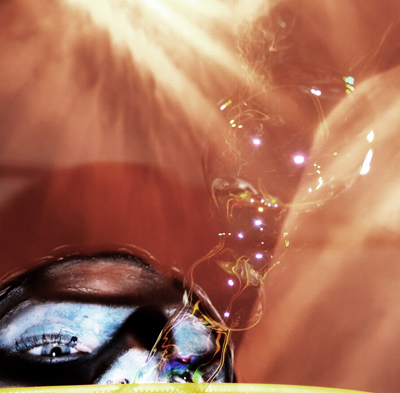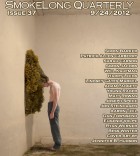There are so many threads to this story, and with its non-linear form, it could have felt like a big tangle, but instead, it is an amazing story that’s not hard to follow, but offers more with every reading. Additionally, love how the narrator, in his struggle to find the right way to tell the story, keeps vacillating about the words to use. What can you tell us about this form and what the narrator is trying to accomplish in its telling?
First off, thank you, I’m blushing a little. Second, these questions are really linked for me in the case of “Wreck,” so I’m going to combine my answers.
This was one of those stories I didn’t plan on writing. I’d actually just been walking on the beach, and saw an engine block half-buried in the sand, a crumpled sail, and a pod of dolphins. My fiancée was much more excited about the dolphins, but I couldn’t stop staring at that engine. So I sat down with my laptop.
During my MFA I took a non-fiction workshop from Francois Camoin, who told us not to worry about the story, about what happens next, but just about the next word. That’s how “Wreck” started; with me struggling to arrive at understanding word by word. At that scope, the choice of “ocean” or “sea” becomes daunting, where it would be nearly inconsequential in a story that is only pursuing narrative.
This story’s form came from my own process of discovery. As I started putting words together, struggling with choice, these narriticules presented themselves, and as I pursued them I saw how they could come together, how they could be a foil for my own hope that everything can cohere. If the story makes sense, it’s because I had to make it understandable to myself, so that I could maybe figure out what I was after.
In a lot of ways “Wreck” is a non-fiction essay in which I’m trying to understand how some writers can generate profundity with storytelling as if they meant to, when I so often feel like I’m incapable of making choices—as if, when I’m writing, I’m in pursuit of something, and I can’t influence this thing, or act on it, I can only react to its changing whim or course, and any meaning I arrive at is entirely accidental. That sounds vaguely Platonic. I sort of hate Plato.
On your blog, you write about metaphorical UFOs. Can you give us a hint about these?
You’re referring to one of my posts about UFOs and Their Spiritual Mission, which is really Daniel J. Glendening’s baby. I was lucky enough to be asked to contribute a story for the book.
He presented me with that title and with this artwork—brutalist buildings deprived of their natural surface textures and inserted into video game landscapes. The only guidance he gave me was a word limit.
I immediately knew that the UFOs in this case weren’t interstellar travelers. A video game, like any piece of art, is its own little world, and we’re the visitors, come to explore and learn. But video games have this extra layer, where the world is a facade created in the midst of nothingness, and glitches occur that sometimes let us glimpse that nothing. That space is totally inaccessible to the inhabitants of the video game world, so alien to them that it’s unknowable. But Daniel’s buildings looked like glitches, like someone making buildings out of holes in reality.
So my contribution to that project is how virtual worlds hide a perfect void, a thing impossible in reality, and everything is alien to that space. Or, perhaps more accurately, that void is the ultimate UFO.
What are you working on at the moment?
I have a few projects going. I’m revising my MFA thesis, a novella-length mash-up of memoir and science fiction. It’s the story of how I lost my father to cancer, and the connection between loss and invention. Also, there are robots. In addition, I’m working on a book about aliens coming to Earth and stealing all our money, and on a handful of short stories. With any luck, you haven’t heard the last of me.



 The SmokeLong Grand Micro Contest (The Mikey) is now an annual competition celebrating and compensating the best micro fiction and nonfiction online.
The SmokeLong Grand Micro Contest (The Mikey) is now an annual competition celebrating and compensating the best micro fiction and nonfiction online.